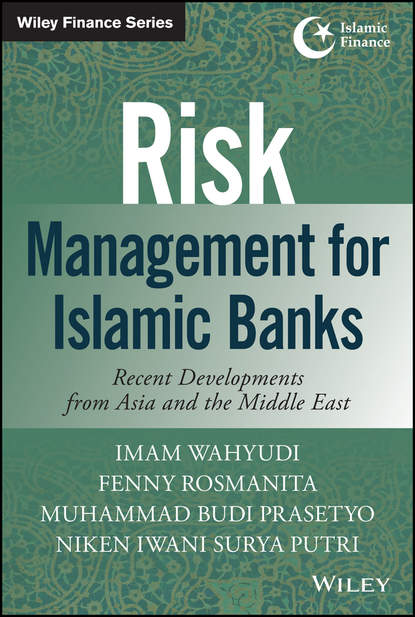Книга "Управление рисками для исламских банков: последние разработки из Азии и Ближнего Востока" анализирует стратегии управления рисками в исламской банковской системе с точки зрения различных банковских учреждений. Используя всеобъемлющие глобальные кейс-стади, книга детально описывает риски, с которыми сталкиваются различные банковские учреждения в Индонезии, Малайзии, ОАЭ, Бахрейне, Пакистане и Саудовской Аравии, указывая на различные стратегии управления, возникающие в результате практики исламского банкинга.
Читатели получают представление об управлении рисками как о комплексной системе и процессе взаимосвязанных непрерывных циклов, интегрированных в каждую бизнес-деятельность внутри исламских банков. Уникальные процессы, присущие исламскому банкингу, порождают сложные риски, нехарактерные для традиционных банков. Начиная от соответствия шариату и заканчивая контрактами на участие в капитале и сложными торговыми контрактами, исламские банки сталкиваются с уникальными рыночными рисками.
Книга охватывает создание соответствующей среды управления рисками, а также стратегию внедрения поэтапно, включающую идентификацию, измерение, смягчение, мониторинг, контроль и отчетность по рискам. Книга начинается с обсуждения философии управления рисками, а затем более глубоко рассматривает этот вопрос, затрагивая такие темы как: управление рисками как интегрированная система; история, структура и процесс управления рисками в исламском банкинге; риски финансирования, операционные, инвестиционные и рыночные; соответствие шариату и связанные с этим риски.
Книга также обсуждает будущий потенциал и проблемы исламского банкинга, а также намечает путь управления рисками. Будучи исследованием мудрости, знаний и идеальной практики исламского банкинга, книга "Управление рисками для исламских банков" содержит ценные идеи для тех, кто активно работает на исламском рынке.
This fascinating examination of contemporary developments in Islamic bank risk management around the world, provides exclusive insights into strategies used by banking institutions to manage various intricate risks. Shed light on the need to recognize and comprehend such risks through the use of global case-studies, discover multiple risk management methods used by Islamic banks, and discover how risk management can easily be integrated into their daily cycles. Gain invaluable information on how Sharia-compliant procedures, equity risk, complex sales contracts, market durability, and environmental severity impact Islamic financial risk management. Learn how to create an optimal risk management ecosystem, adopt a sequential implementation model covering risk assessment, interchange, control, review, analysis, and report distribution. Examine the relationship between risk management and the overarching philosophy of Islamic financial institutions, establish a profound understanding of the historical, fundamental, and operational aspects of Islam banking risk management techniques and their influence on financing, commercial, capital market, Sharia-compliance related risks, and lay constraints for the journey ahead. Discover the precipitous hurdles, new endeavors, and intrigue surrounding Islamic Finance and the optimal managers' tactics in supporting the prosperity of this groundbreaking field at large. Ideal for students and scholars alike, interested in developing their expertise regarding Islamic finance and Muslim economies.
Электронная Книга «Risk Management for Islamic Banks. Recent Developments from Asia and the Middle East» написана автором Imam Wahyudi в году.
Минимальный возраст читателя: 0
Язык: Английский
ISBN: 9781118734438
Описание книги от Imam Wahyudi
Gain insight into the unique risk management challenges within the Islamic banking system Risk Management for Islamic Banks: Recent Developments from Asia and the Middle East analyzes risk management strategies in Islamic banking, presented from the perspectives of different banking institutions. Using comprehensive global case studies, the book details the risks involving various banking institutions in Indonesia, Malaysia, UAE, Bahrain, Pakistan, and Saudi Arabia, pointing out the different management strategies that arise as a result of Islamic banking practices. Readers gain insight into risk management as a comprehensive system, and a process of interlinked continuous cycles that integrate into every business activity within Islamic banks. The unique processes inherent in Islamic banking bring about complex risks not experienced by traditional banks. From Shariah compliance, to equity participation contracts, to complicated sale contracts, Islamic banks face unique market risks. Risk Management for Islamic Banks covers the creation of an appropriate risk management environment, as well as a stage-based implementation strategy that includes risk identification, measurement, mitigation, monitoring, controlling, and reporting. The book begins with a discussion of the philosophy of risk management, then delves deeper into the issue with topics like: Risk management as an integrated system The history, framework, and process of risk management in Islamic banking Financing, operational, investment, and market risk Shariah compliance and associated risk The book also discusses the future potential and challenges of Islamic banking, and outlines the risk management pathway. As an examination of the wisdom, knowledge, and ideal practice of Islamic banking, Risk Management for Islamic Banks contains valuable insights for those active in the Islamic market.



















